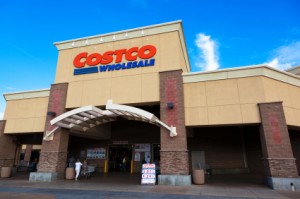 If you’ve ever shopped at Costco, Sam’s Club or any other warehouse-type store for home goods, you know how easy it is to get carried away with the tantalizing prices of bulk items. “Twelve dollars for 20 bars of Dove soap? What a steal!” Then you get home and remember you don’t even use Dove soap, and it just sits in the back of your bathroom storage cabinet.
If you’ve ever shopped at Costco, Sam’s Club or any other warehouse-type store for home goods, you know how easy it is to get carried away with the tantalizing prices of bulk items. “Twelve dollars for 20 bars of Dove soap? What a steal!” Then you get home and remember you don’t even use Dove soap, and it just sits in the back of your bathroom storage cabinet.
As tempting as some of the prices might be, buying in bulk isn’t exactly as cut-and-dry as it seems. When it comes to bulk-buying for business, things can get even more complicated. Read on for some tips on how to really get the most bang for your bulk buck.
Stick with Non-Perishables
Unless you work in a restaurant, buying perishable items in bulk can be a disaster. However, even non-perishable bulk-buying can be a bad idea if you’re spending money on items you don’t regularly use. For example, printer ink might be classified as a non-perishable item, and it’s something that seems justifiable to buy in bulk for your business. However, if you deal largely with electronic communication, this seemingly non-perishable item can eventually dry out and go to waste. Plus, even when buying in bulk, ink isn’t cheap!
Consider Your Space
Small businesses could save a lot of money by purchasing huge packages of office supplies, toilet paper, and other essential everyday items in bulk. But when working in a small setting, you also have to consider how much room you have to work with. If your storage room—or, worse yet, your entire house—starts to look like an episode of “Hoarders,” it might be time to take a break from bulk buying. Remember that you only have so much space to work with, so use it carefully and avoid getting too carried away.
Measure Consumption
Sure, you might technically find a use for 50 rolls of tape, but how often do you really use this item when you don’t have loads of it hanging out in the storage room? Perhaps a worse offense than letting items go to waste is needlessly consuming them. You think you’re saving money because everything’s being used, but be wary of careless consumption of a product just because you’ve got a huge reserve.
For example, it’s good to have a stash of battery-operated flashlights and batteries around the workplace, but employees shouldn’t be using them to play shadow puppet games or on their weekend camping trips. Before you start buying items in bulk for your business, be sure to keep a long, detailed record of the typical consumption levels in the workplace. Continue to monitor these levels after you start collecting a reserve to keep track of your consumption habits.
Too often, financial experts will advertise the benefits of buying in bulk without emphasizing the importance of not going overboard. Believe it or not, the practice isn’t as intuitive as it might seem. In fact, it’s more natural to get greedy with high volumes of supplies than it is to use sparingly. However, with a little practice and an application of these fundamental rules, the benefits of buying in bulk can far outweigh the risks.
Felicia Baratz is a freelance writer, graphic designer and social media addict living in Indianapolis, IN. As a contributor to ProfessionalIntern.com, Felicia discusses new, innovative technology and it’s relation to the business world and social media marketing.